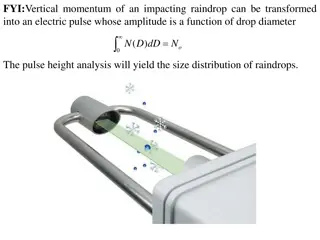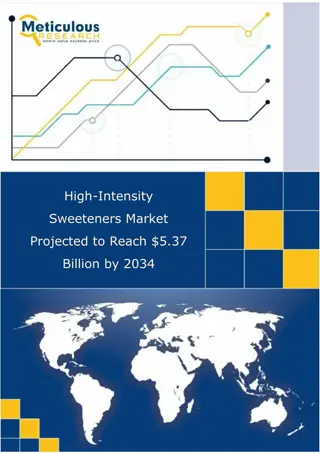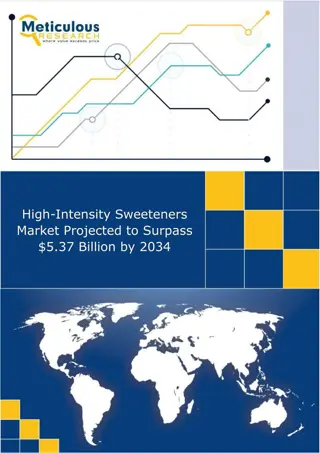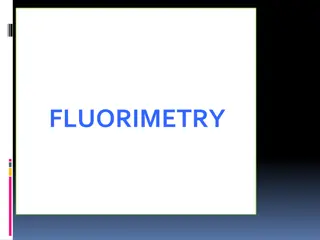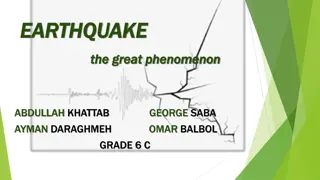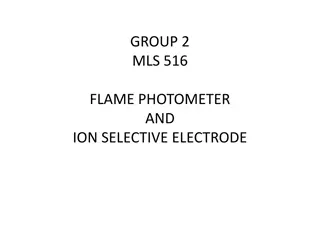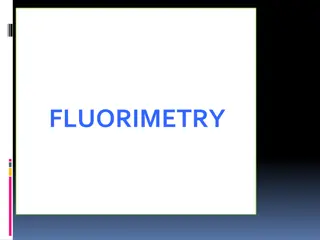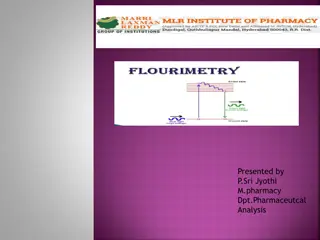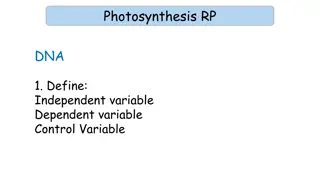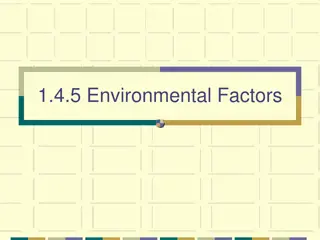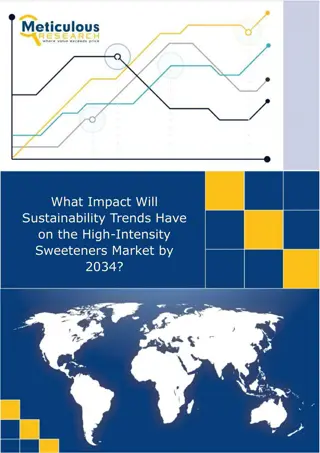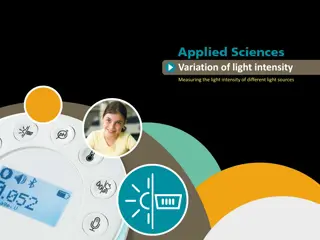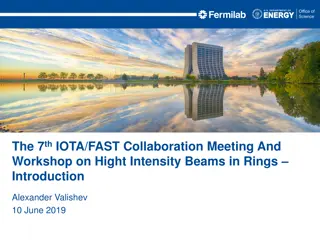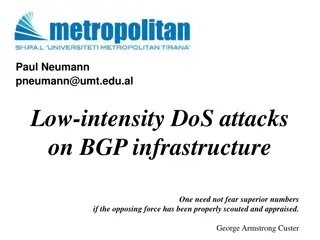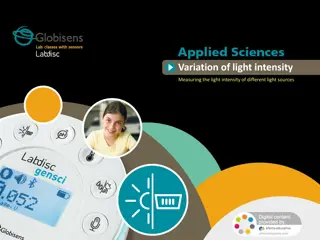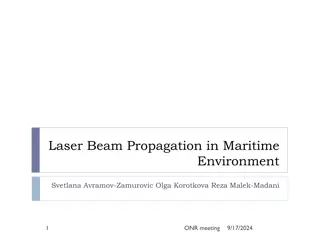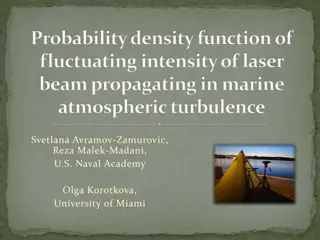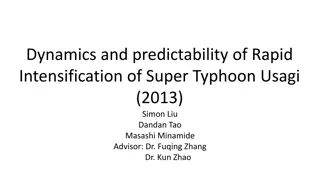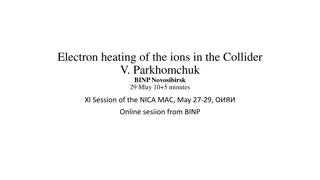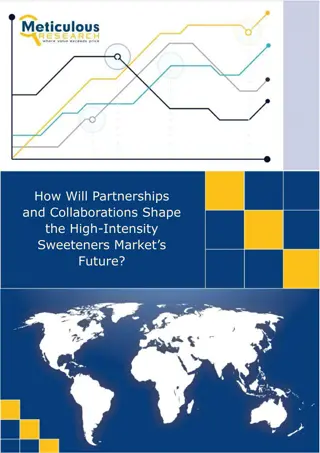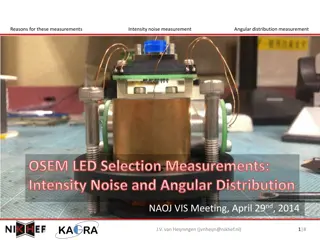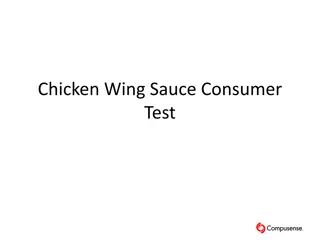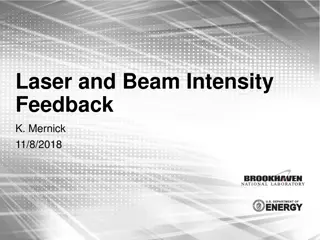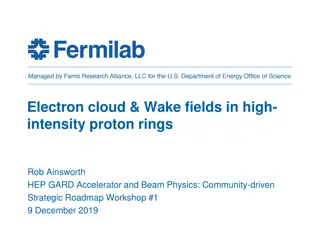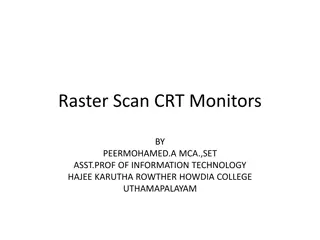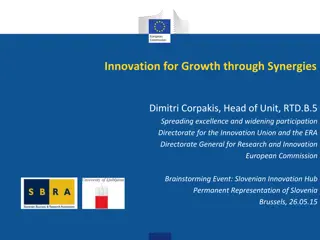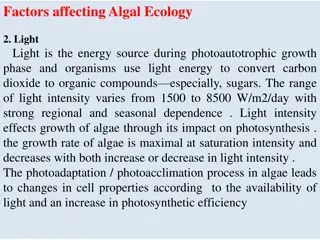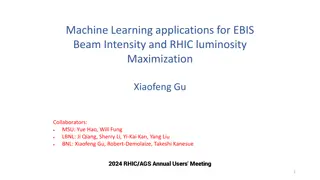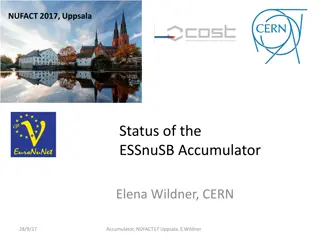Insights into Raindrop Size Distribution and Precipitation Intensity through Radar Technology
Vertical momentum of impacting raindrops can be converted into an electric pulse to analyze raindrop size distribution. Disdrometers using video cameras can directly count raindrops for sizing. Radar technology provides superior data on precipitation accumulation and intensity by measuring radar ref
4 views • 9 slides
Understanding Photosynthesis and Limiting Factors
Photosynthesis is an endothermic reaction that takes in energy from its surroundings. The law of limiting factors explains how various factors such as light intensity, temperature, and CO2 concentration can impact the rate of photosynthesis. Additionally, the concept of the inverse square law helps
7 views • 45 slides
Improving Heat Rate Efficiency at Illinois Coal-Fired Power Plants
Heat rate improvements at coal-fired power plants in Illinois are crucial for enhancing energy conversion efficiency, reducing carbon intensity, and minimizing pollution. By increasing the heat rate/efficiency by 6%, these plants can generate more electricity while burning the same amount of coal. T
2 views • 11 slides
High-Intensity Sweeteners Market Projected to Reach $5.37 Billion by 2034
The global high-intensity sweeteners market is projected to experience significant growth through 2034. High-intensity sweeteners are widely used as sugar substitutes due to their ability to provide the desired sweetness without the calories. \n
0 views • 5 slides
High-Intensity Sweeteners Market Projected to Surpass $5.37 Billion by 2034
The High-Intensity Sweeteners Market is projected to reach $5.37 billion by 2034, growing at a CAGR of 5% during the forecast period from 2024 to 2034.\n
0 views • 4 slides
Understanding Fluorimetry: Principles and Applications
Fluorimetry is the measurement of fluorescence intensity at a specific wavelength using instruments like filter fluorimeters. It involves the excitation of molecules by radiation, causing electron promotion and emission of radiation. This process includes states like singlet and triplet, with relaxa
3 views • 45 slides
Understanding Earthquakes: Causes, Effects, and Intensity Factors
Earthquakes are sudden shaking movements of the Earth's surface caused by various factors like tectonic plate movements, volcanic eruptions, mining, and construction. They result in ground shaking, rupture, tsunamis, and landslides, with intensity influenced by factors such as distance from the epic
0 views • 10 slides
Understanding Flame Photometry and Its Applications
A photoelectric flame photometer is utilized in inorganic chemical analysis to determine metal ion concentrations such as sodium, potassium, lithium, barium, and calcium. The photometer measures light intensity emitted when elements are exposed to a flame. By controlling flame color intensity, the d
1 views • 25 slides
Understanding Fluorimetry: Principles, Applications, and Instrumentation
Fluorimetry is a technique that measures fluorescence intensity of molecules when excited by radiation. It involves the promotion of electrons from ground to excited states, leading to emission of radiation. This process includes singlet and triplet states, as well as relaxation mechanisms like Coll
0 views • 45 slides
Guideline for Statin Management in High-Risk Groups - 2018 ACC/AHA
This guideline outlines the management of blood cholesterol in high-risk groups according to the 2018 ACC/AHA recommendations. It discusses the overall approach, different statin management groups, justification for statin use in high-risk populations, high and moderate-intensity statin therapy, and
1 views • 14 slides
Understanding Fluorescence Analysis in Pharmaceutical Sciences
Fluorescence analysis is a crucial technique in pharmaceutical analysis, involving the emission of radiation by molecules when excited at specific wavelengths. Factors influencing fluorescence, such as concentration, light intensity, adsorption, oxygen presence, pH, temperature, viscosity, and photo
2 views • 26 slides
Investigating the Effect of Light Intensity on Photosynthesis Using Pondweed
Explore the impact of light intensity on photosynthesis rates by conducting a practical experiment with aquatic plants like pondweed. Learn about the factors influencing photosynthesis and how to measure its rate effectively through counting oxygen bubbles produced. Follow a step-by-step guide to se
0 views • 12 slides
High-Intensity Sweeteners Market
The High-Intensity Sweeteners Market is expected to grow to $5.37 billion by 2034, with a compound annual growth rate (CAGR) of 5% over the forecast period from 2024 to 2034.\n
0 views • 3 slides
Understanding Environmental Factors in Terrestrial and Aquatic Environments
Environmental factors play a crucial role in shaping ecosystems. In both terrestrial (land) and aquatic (water) environments, organisms are influenced by abiotic factors such as temperature, light intensity, and pH, as well as biotic factors like plants, predators, and competitors. Understanding the
4 views • 19 slides
High-Intensity Sweeteners Market
With a projected value of $5.37 billion by 2034 and a CAGR of 5% during the 2024\u20132034 period, the High-Intensity Sweeteners Market is set for substantial growth. \n
0 views • 3 slides
Understanding Light Intensity Variation in Different Sources
Explore the correlation between light intensity and efficiency in various light sources through an intriguing experiment. Delve into the theoretical framework and practical applications to grasp the essence of light intensity and its distribution. Uncover the factors influencing the efficiency of li
0 views • 21 slides
7th IOTA/FAST Collaboration Meeting & Workshop on High-Intensity Beams
The 7th IOTA/FAST Collaboration Meeting & Workshop on High-Intensity Beams in Rings, led by Alexander Valishev, featured discussions, emergency procedures, logistics, and a structured meeting agenda focusing on experimentation, research, and future opportunities.
0 views • 4 slides
Understanding Low-Intensity DoS Attacks on BGP Infrastructure
Low-intensity Denial of Service (DoS) attacks present a new challenge in cyber warfare, blending in with regular traffic to target communication channels like HTTP, SMTP, and DNS. These attacks require multiple participating hosts to flood the target with useless packets, gradually overloading serve
0 views • 25 slides
Understanding Ultrasound Transducers: Applications and Functionality
Ultrasound transducers play a crucial role in medical imaging by converting electrical signals into ultrasonic energy for tissue penetration and image creation. This technology utilizes focused transducers to enhance resolution and penetration, while also managing beam intensity. The article delves
0 views • 24 slides
Understanding Light Intensity: Measuring Different Light Sources
Explore the concept of light intensity by measuring various light sources and their efficiency. Through practical experiments, understand the relationship between light intensity and the output of different light sources. Theoretical frameworks, practical applications, and key concepts are discussed
0 views • 21 slides
Laser Beam Propagation in Maritime Environment Study
Investigation and comparison of laser beam propagation in maritime environments through field and laboratory experiments. The study examines the effects of real-life conditions such as temperature fluctuations, wind, and aerosols on laser light propagation. A basic field experiment at the US Naval A
0 views • 11 slides
Fluctuating Intensity of Laser Beam in Marine Atmospheric Turbulence
Probability Density Function (PDF) reconstruction for the fluctuating intensity of a laser beam propagating in marine atmospheric turbulence involves experimental setup and calculations of statistical moments. Various models and methods are applied to reconstruct the PDF, crucial for solving inverse
0 views • 23 slides
Understanding the Photoelectric Effect: Dr. Samir Kumar Giri's Research
The photoelectric effect, first observed by Heinrich Hertz in 1887, involves the ejection of electrons from a metal plate when light shines on it. Dr. Samir Kumar Giri from Kharagpur College delves into this phenomenon, exploring how the kinetic energy of photoelectrons depends on light frequency ra
0 views • 11 slides
Understanding FIDOL Factors in Odour Nuisance Evaluation
Factors extracted from a presentation by Marzio Invernizzi and Laura Capelli on odour nuisance include Frequency, Intensity, Duration, Offensiveness, and Location (FIDOL). Frequency of odour exposure is influenced by emission sources, weather conditions, and topography. Intensity is evaluated throug
0 views • 8 slides
Academic Intervention Library Overview
Explore the Intervention Library for academic and behavior interventions, accessed through OKMTSS. Filter interventions by grade band, intensity level, and group size. Understand grade band considerations and intervention intensity tiers. Learn about the recommended group sizes and how to choose the
0 views • 15 slides
Dynamics and Predictability of Super Typhoon Usagi's Rapid Intensification
Study on the rapid intensification of Super Typhoon Usagi in 2013, focusing on the role of moisture, ensemble forecasting, data assimilation, and factors affecting intensity forecasts. The research explores the impact of environmental and internal factors on intensity divergence and timing variation
0 views • 21 slides
Ion Beam Intensity Enhancement Through Electron Heating in Collider Experiments
The study discusses electron heating of ions in collider experiments at the Collider V. ParkhomchukBINP facility in Novosibirsk. It explores the effects of electron cooling on ion beams, ion beam oscillations, losses, and ion beam intensity enhancement. Various factors such as ion charge, classical
0 views • 9 slides
Ecological Factors and Climatic Influences on Plant Life
Ecological factors play a crucial role in shaping the environment for organisms to thrive. This includes living (biotic) and non-living (abiotic) components like climatic factors, edaphic factors, topographic factors, and biotic factors. Climatic factors such as light, temperature, water, wind, and
0 views • 14 slides
High-Intensity Sweeteners Market
By 2034, the global high-intensity sweeteners market is set to reach $5.37 billion in value and 110,871 tons in volume.\n
1 views • 4 slides
Understanding Intensity Noise and Angular Distribution Measurements in LED Selection
The measurements focus on intensity noise and angular distribution to address variations in LED performance observed in LIGO papers. The study aims to investigate intensity noise dependence on LED current, differences between LED batches, and comparisons between them.
0 views • 8 slides
Chicken Wing Sauce Consumer Test Analysis
Analysis of consumer preferences and feedback on different chicken wing sauces based on overall liking, flavor intensity, garlic flavor intensity, honey flavor intensity, and amount of sauce. The study includes crosstabulations and mean graphs to evaluate category liking attributes and jar assessmen
0 views • 12 slides
Intensity Feedback System for Laser Beam Control
The intensity feedback system aims to maintain stable beam current and investigate DC gun performance. Using motor-controlled half wave plates and electro-optical modulators, the system achieved 2% rms stability. Initial measurements with photodiodes revealed challenges, but signals from the gun tab
0 views • 14 slides
Wake Fields and Electron Cloud in High-Intensity Proton Rings
Investigating wake fields and electron cloud phenomena in high-intensity proton rings is crucial for understanding instabilities and improving accelerator science. This involves experimental studies, analyzing instabilities, controlling wake amplitudes, and protecting future machines operating in st
0 views • 22 slides
Understanding Raster Scan CRT Monitors in Information Technology
Raster Scan CRT Monitors are a common graphical output device used in Information Technology. They consist of components like the electron gun, control electrodes, and phosphor-coated screen. The electron beam emitted uses electromagnetic fields to direct and focus on specific spots on the screen. T
0 views • 11 slides
Slovenia's R&D Success: Achieving Growth Through Innovation and Synergies
Slovenia has made significant progress in increasing research and development (R&D) intensity, positioning itself as a top performer in the EU. With a focus on stimulating innovative SMEs and public-private partnerships, the country is on track to meet its 2020 R&D intensity target. Challenges remai
0 views • 12 slides
Allogeneic Hematopoietic Stem Cell Transplantation Overview
This presentation discusses the current status and future directions of hematopoietic stem cell transplantation, focusing on autologous and allogeneic procedures, different sources of stem cells, and various conditioning regimens. It delves into how myeloablative allogeneic bone marrow transplantati
0 views • 32 slides
Factors Affecting Algal Ecology: Light Intensity Impacts on Algae Growth and Composition
Light intensity plays a crucial role in the growth and composition of algae. Algae undergo photoadaptation processes to adjust to varying light levels, affecting their photosynthetic efficiency and cellular properties. High light intensity can lead to photoinhibition and changes in cellular composit
0 views • 19 slides
Understanding Earthquakes: Causes, Effects, and Intensity Factors
Earthquakes are sudden shaking movements of the Earth's surface caused by various factors like volcanic eruptions, tectonic plate movements, mining, and construction. They result in ground shaking, ruptures, tsunamis, and landslides, with intensity affected by distance, depth, population density, ge
0 views • 10 slides
Machine Learning Applications for EBIS Beam Intensity and RHIC Luminosity Maximization
This presentation discusses the application of machine learning for optimizing EBIS beam intensity and RHIC luminosity. It covers topics such as motivation, EBIS beam intensity optimization, luminosity optimization, and outlines the plan and summary of the project. Collaborators from MSU, LBNL, and
0 views • 23 slides
Challenges and Design of High-Intensity Accumulator for Neutrino Experiments
The presentation discusses the challenges faced in designing an accumulator for high-intensity particle beams in neutrino experiments at ESS Lund, with a focus on beam loss management, injection efficiency, and intense beam physics issues. The design considerations include beam holding capacity, bea
0 views • 30 slides
